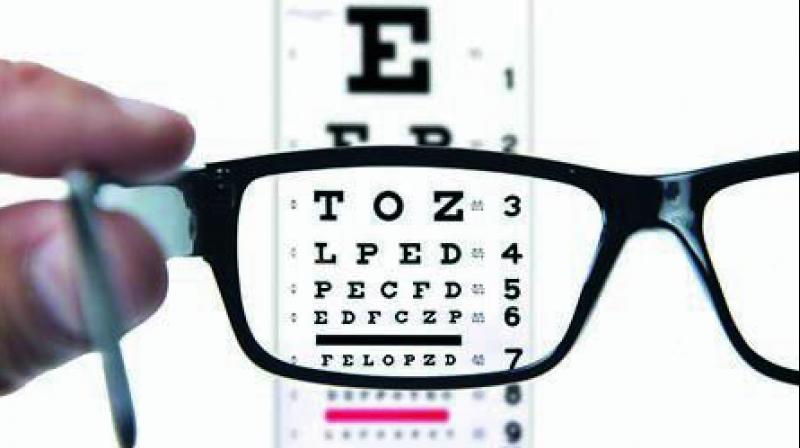All in the blink of the eye
The eyes have natural lubricants that keep them moist and helps produce tears.

Most people today spend at least 8-10 hours on an average looking at their mobile phones, television and other devices. In observing this phenomenon, the American Academy of Ophthalmology had issued guidelines, which stated that people must opt for regular eye check-ups and doctors must address the issue of eye fatigue owing to digital over-exposure. Closer home, Dr Narahari Yamjala, senior consultant eye surgeon in the city, cautions that eye fatigue directly affects the lubricants in the eyes, which keep the eyes moist and healthy. She answers some queries about eye fatigue and shares some steps to overcome the dry-eye syndrome.
How does increased screen time affect the eye?
The eyes have natural lubricants that keep them moist and helps produce tears. Tears, which play an important role in the restoration of vision, are made of a mixture of water and lipids that form a thin layer on the cornea called the eye film. This is a constant and important phenomenon in the eyes, which plays a crucial role in blinking. However, present day workhours make it inevitable for many to spend more than 8 hours on the screen time. This leads to severe dry-eye syndrome, headaches and mental fatigue. Long hours spent in constantly looking at the digital screen disturbs blinking, and without blinking, dryness sets in. This leads to dry-eye syndrome, one of the major reasons for eye fatigue.
What are the symptoms of eye fatigue?
Dryness of the eyes is the root cause of all the symptoms of eye fatigue. Following are the symptoms to look out for:
- Irritation of the eyes
- Red eyes
- Blurred vision
- Headache
- Neck pain
How does eye fatigue affect the body and mind? Does it hamper the functionality of the body? Please explain.
Exposure for a long period without taking breaks and opting for remedial measures can lead to strain on the eyes, vision problems in the form of increased numbers in the lenses used and the most common complaint most eye-specialists encounter-fatigue-related headaches.
Is this also the reason for the pain in the area surrounding the eyes especially in those who use it during the night hours with only the light of the screen?
As an eye specialist, I have come upon many complaints of pain in the forehead region and around the eyes especially from those who work without taking a break. Taking a break from staring at the screen time is very important. The general rule is that there must be a 10-minute break after every one hour. Also I strongly recommend the use of the 20-20-20 rule. Every 20 minutes, look away from the screens and focus about 20 feet in of you for 20 seconds.
Are there any other effects owing to constantly staring at on one’s smart phones, television and computer screens?
A few studies have indeed shown that long-term use of digital devices is known to cause shrinking of the grey and white matter in the brain. This results in change of emotional processing and functioning. The related experiments have been conducted in animals and there are multiple studies being carried out at various centres in the experiments to understand how it is affecting the human brain.
So what are the remedial measures?
The remedial measures are very easy to follow. But it requires one to be dedicated and to carry out those measures regularly to ensure that the eyes are healthy. If proper remedial measures are not taken, fatigue can recur and it will then become a chronic problem.
- Ensure regular blinking. Conscious blinking and taking breaks will delay the onset of dryness and thereby fatigue in the eyes
- Take frequent and regular breaks from the screen time, as recommended above
- Take a complete eye check-up annually
- Use proper, prescribed spectacles
- Use antiglare-coated glasses
- Ensure proper lighting of the surroundings one is in
- Decrease screen brightness on all devices
- Position the computer screen properly, at the eye level
In the age of screen times, how does an individual practise digital detox?
Digital detox is imperative for those who are excessively dependent on digital tools and media. For a normal individual, practising a simple regime of keeping away from screen for a few hours and following the rule of 20-20-20 will help.

